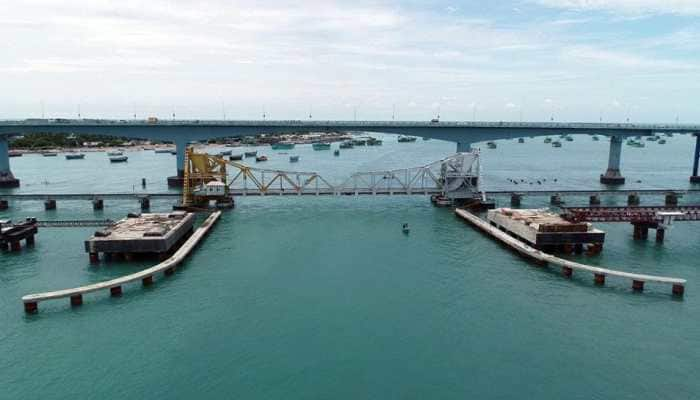Iran's Missile Attack On Israel Sends Oil Prices Skyrocketing; Tensions In Middle East Sparks Worries On Global Oil Supply
The ongoing tensions highlight the importance of Iran's oil industry for maintaining stability in energy markets, especially during periods of political unrest or possible supply shortages.
Trending Photos
)
New Delhi: Oil futures jumped by almost 5% on Tuesday following reports that Iran had fired missiles at Israel. This escalation in Middle East tensions has sparked worries about possible disruptions to the global oil supply.
The growing conflict increases uncertainty in an already unstable energy market, where concerns about supply shortages often result in rapid price increases.
According to reports from Forbes, West Texas Intermediate (WTI) crude for November delivery rose by 4.7% to $71.31 per barrel, marking its largest one-day percentage increase since October 2023.
Brent crude for December delivery rose by 4.2%, reaching $74.71 per barrel.
This surge shows increasing concern among market players about the future of oil supplies from a region that contains some of the world's biggest reserves.
After the missile attacks, air raid sirens sounded throughout Israel, and many missiles were seen over Tel Aviv, Jerusalem, and Haifa.
Iran's Islamic Revolutionary Guard Corps took responsibility for the attack, stating it targeted Israeli military and security sites as revenge for the killing of Hezbollah leader Hassan Nasrallah and other important figures.
The Israeli military initially estimated that around 180 missiles were launched and warned that this act of aggression "will have consequences," suggesting that the conflict could escalate further.
If Israel responds by attacking Iran's oil refineries and production facilities, it could cause major disruptions to the global oil supply.
Iran's oil industry is crucial to the global energy market due to its large reserves and high production capacity.
In 2023, Iran produced around 3.9 million barrels of oil per day, making it the seventh-largest oil producer in the world and accounting for nearly 5% of global oil output, according to the Statistical Review of World Energy.
This large production level means that any long-term disruption could greatly impact the stability of global energy supplies and the prices consumers pay for fuel.
Iran has the fourth-largest proven crude oil reserves in the world and is a key member of OPEC, traditionally producing about 3-4 million barrels per day.
This positions Iran as a crucial player in keeping the global oil supply stable and affecting market prices.
However, Iran's oil exports have been heavily impacted by international sanctions, especially from the U.S. and European nations.
Any shifts in sanctions, production levels, or geopolitical events involving Iran can cause major swings in oil prices, as millions of barrels of crude could be added to or removed from the global market.
The ongoing tensions highlight the importance of Iran's oil industry for maintaining stability in energy markets, especially during periods of political unrest or possible supply shortages.
Another key factor is that Iran borders the Strait of Hormuz, a vital route for global oil transport because of its strategic location and the large amount of oil that moves through it every day.
This narrow passage, located between Iran and the Arabian Peninsula, links the Persian Gulf to the Gulf of Oman and the Arabian Sea. It is the main export route for several key oil-producing countries in the region.
Around 20-30% of the world’s oil passes through this waterway, making it the most important oil chokepoint in the world.
The importance of the strait is even greater because there are few alternative routes for transporting oil from the Persian Gulf, making it essential for global energy markets.
Any risk of disruption to the flow of oil through the Strait of Hormuz can greatly impact global oil prices and the world economy, highlighting its economic and geopolitical significance.
The vulnerability of the Strait, being only about 21 nautical miles (around 39 kilometers) wide at its narrowest point, along with its importance in liquefied natural gas (LNG) exports and overall maritime trade, makes it a potential hotspot for regional conflicts and international tensions.
Stay informed on all the latest news, real-time breaking news updates, and follow all the important headlines in india news and world News on Zee News.
Live Tv







)
)
)
)
)
)
)
)
)
)
